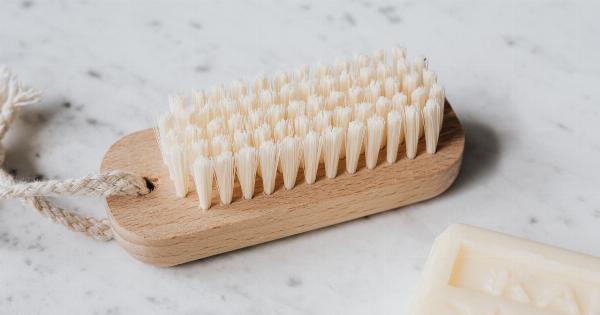Allergies are a common condition that affects millions of people worldwide. They occur when the body’s immune system overreacts to substances that are generally harmless, such as pollen, dust mites, or certain foods.
Allergies can cause a wide range of symptoms, including sneezing, itching, nasal congestion, watery eyes, and skin rashes. If you’re tired of suffering from allergies and want to find ways to get rid of them quickly, this article is for you. Read on to discover effective strategies and remedies to alleviate your allergy symptoms and improve your quality of life.
Identifying Your Allergy Triggers
The first step in finding relief from allergies is identifying your triggers. This can be done through an allergy test conducted by a healthcare professional.
Knowing what substances or conditions trigger your allergic reactions is crucial in managing and preventing allergy symptoms. Common allergy triggers include pollen, pet dander, mold, dust mites, certain foods, and insect stings. Once you know your specific triggers, you can take appropriate measures to minimize exposure and alleviate symptoms.
Natural Remedies for Allergy Relief
If you prefer natural remedies, there are several options available to help alleviate allergy symptoms:.
1. Nasal Irrigation with Saline Solution
Nasal irrigation involves flushing out the nasal passages with a saline solution. This can help remove irritants, decrease congestion, and reduce allergy symptoms. You can use a neti pot or a squeeze bottle specifically designed for nasal irrigation.
Ensure that you use distilled or sterilized water and follow proper instructions to avoid any complications.
2. Local Honey
Some people believe that consuming local honey can help desensitize the body to pollen allergens, reducing the severity of allergic reactions.
While scientific evidence supporting this claim is limited, adding a teaspoon of local honey to your diet may be worth a try.
3. Probiotics
Probiotics, also known as good bacteria, are beneficial for overall gut health. Some studies suggest that probiotics may help reduce allergic rhinitis symptoms and improve the body’s immune response.
You can find probiotics in yogurt, kefir, sauerkraut, and other fermented foods.
4. Quercetin-Rich Foods
Quercetin is a natural flavonoid known for its anti-inflammatory and antihistamine properties. Consuming quercetin-rich foods such as apples, berries, kale, and broccoli may help relieve allergy symptoms.
However, consult with your healthcare provider before incorporating any new supplements or high-dose quercetin into your diet.
Lifestyle Changes for Allergy-Free Living
Alongside natural remedies, making certain lifestyle changes can significantly reduce allergy symptoms:.
1. Keep Your Home Clean
Dust mites, pet dander, and mold can trigger allergies indoors. Regularly clean your home, vacuum carpets and furniture, wash bedding in hot water, and use allergen-proof covers for pillows and mattresses.
Minimize clutter, as it can harbor allergens and make cleaning more difficult. Consider using a HEPA filter to improve indoor air quality.
2. Use Hypoallergenic Bedding
Investing in hypoallergenic bedding, including pillows, mattress covers, and sheets, can create a barrier against dust mites and other allergens.
These products are specially designed to be resistant to allergens and can help reduce allergy symptoms while you sleep.
3. Remove Carpets and Rugs
Carpets and rugs can trap allergens, making it challenging to keep your home allergen-free. If possible, consider replacing carpeted areas with hardwood or vinyl flooring, which are easier to clean and less likely to harbor allergens.
If removing carpets entirely is not feasible, ensure regular deep cleaning and consider using low-pile or washable rugs.
4. Manage Outdoor Exposure
When pollen counts are high, it’s essential to limit your outdoor exposure. Check local weather reports or websites for pollen forecasts and try to avoid spending extended periods outside during peak times.
If you do go outside, wearing sunglasses and a wide-brimmed hat can help prevent pollen from coming into contact with your eyes and face. When you return indoors, change your clothes and take a shower to remove any lingering allergens.
Medical Treatments for Allergies
If natural remedies and lifestyle changes do not provide sufficient relief, medical treatments may be necessary. Consult with a healthcare professional to determine the best options for your specific allergies:.
1. Antihistamines
Antihistamines are commonly used to relieve allergy symptoms. They work by blocking the effects of histamine, a chemical released by the immune system during an allergic reaction. Antihistamines can help reduce itching, sneezing, and runny nose.
They are available both over-the-counter and by prescription.
2. Decongestants
Decongestants help shrink swollen blood vessels in the nasal passages, allowing for easier breathing. However, decongestants should not be used for more than a few days at a time, as prolonged use can lead to rebound congestion.
Oral and nasal spray decongestants are available, but they should be used under a healthcare professional’s guidance.
3. Immunotherapy
Immunotherapy, also known as allergy shots or allergy drops, involves exposing the body to small amounts of allergens over time. This helps the immune system build tolerance and reduce allergic reactions.
Immunotherapy is typically used for severe allergies or when other treatments have not been effective. It may require regular visits to a healthcare professional’s office for several months or longer.
4. Prescription Medications
If your allergies are severe or significantly impact your quality of life, your healthcare professional may prescribe stronger medications.
These can include nasal corticosteroids, oral corticosteroids, or other specialized medications to manage your specific allergic reactions.
Conclusion
Allergies can be disruptive and make everyday life uncomfortable. However, with the right strategies, remedies, and medical treatments, you can effectively manage and alleviate allergy symptoms.
From natural remedies and lifestyle changes to medical interventions, there are various options available to help you get rid of allergies quickly. Take the time to identify your triggers, try different approaches, and consult with a healthcare professional to develop a personalized allergy relief plan.
By taking control of your allergies, you can improve your well-being and enjoy an allergy-free life.































